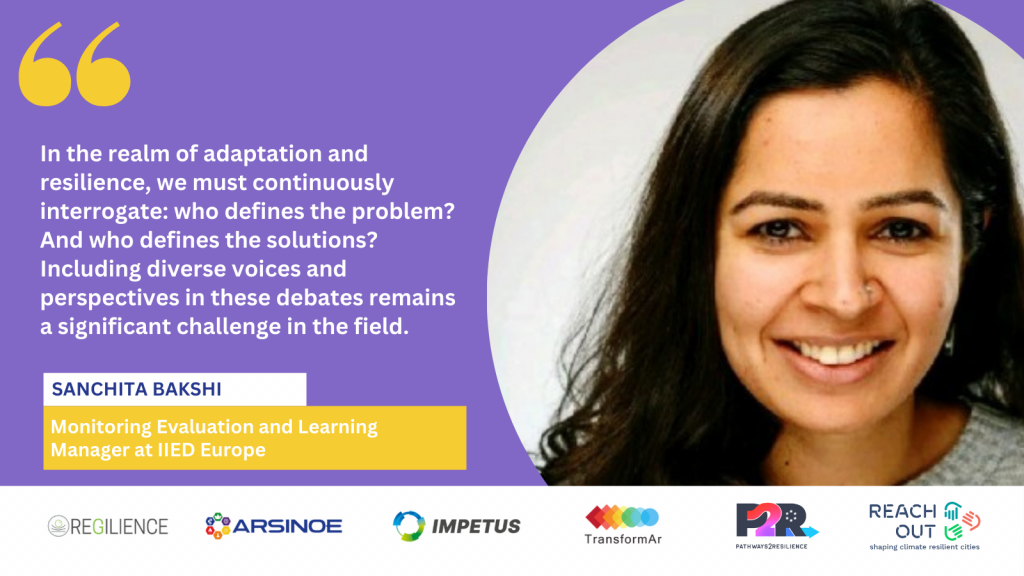Sanchita Bakshi, MEL manager from IIED Europe, and partner in P2R shares her journey.

March is the month dedicated to celebrating the achievements and contributions of women worldwide. In line with this spirit, Pathways2Resilience, REGILIENCE, Arsinoe, IMPETUS, TransformAr, and REACHOUT have jointly engaged in insightful conversations with inspiring women actively involved in working on resilience and adaptation solutions to address the current climate crisis. Learn more about their journeys.
How is your expertise and background reflected in your involvement in the Pathways2Resilience project?
Born and raised in India, my journey into the climate arena began from a development perspective, where I delved into understanding the linkages between development choices and climate resilience. Through years of grassroots engagement and policy work, particularly in rural development, natural resource management, and decentralised governance, I honed my skills in evaluating the efficacy of governmental initiatives. This background has translated into my current role at Pathways2Resilience (P2R), where despite differing contexts, we grapple with similar questions concerning regional institutional capabilities for climate resilience. My prior research experience, especially in evaluation methodologies, has equipped me to navigate complex challenges and contribute meaningfully to the objectives of P2R.
What are the main drivers that motivated you to contribute to the field of climate adaptation and resilience?
My main driving force is the imminent reality of climate change. Its urgency cannot be overstated- it is a pressing, real world problem that demands immediate attention. Amidst the minutiae of our daily work, meetings, and deadlines, we are all trying to address the impact of this global challenge, and to me that is a meaningful undertaking. Through our work in P2R, to be able to work directly with regional institutions at the forefront of this challenge, and to provide tangible support is a very gratifying experience. Additionally, my motivation is also fuelled by the emphasis on climate justice. At the end of the day, like every other social phenomenon, climate change will create winners and losers, and addressing those underlying power differentials is crucial to highlight. I am grateful that my work with P2R and at the International Institute for Environment and Development (IIED) Europe, where I am based, allows me to marry these dual motivations.
What is the biggest challenge that you have faced in your career, notably as a woman in the field of climate adaptation and resilience?
Historically, climate change has been conceived as a biophysical problem and therefore the solutions proposed have also tended to focus on more technological and technocratic fixes. Indeed, it is a biophysical issue, but it is also a social issue. For far too long women’s voices have been sidelined in the climate debates because they were felt to be addressing “softer” concerns. I am pleased that this discourse is changing, and workplaces are recognising and valuing the contributions of women in the field. That being said, we must delve deeper. Women of colour, whose perspectives are intertwined with legacies of racial, and colonial oppression, as well as contemporary capitalist exploitation, often find their voices marginalised and their narratives overlooked in discussions. In the realm of adaptation and resilience, we have to continuously interrogate: who defines the problem? And who defines the solutions? Including diverse voices and perspectives in these debates remains a significant challenge in the field.
In your words, what would you say is the biggest challenge that we face to adapt efficiently to climate change – and in the most just way?
Let me start by highlighting what I see as the biggest achievement. I think there is tremendous consensus on climate change as a pressing problem that demands action. However, this consensus is also, as some have pointed out, the lowest common denominator. We need to move beyond this basic consensus and work towards building a shared vision for our communities and regions. This is part of our crucial endeavour in P2R, and this is also going to be particularly challenging because as you can imagine it requires bringing together diverse stakeholders, each with their own interests and priorities.
The second big challenge is to come up with systemic solutions with an emphasis on phasing out unsustainable practices, behaviours and path dependencies. A systems approach and systems thinking, going beyond single issues and single sectors, calls for integrated governance processes- one that, research suggests is currently lacking in Europe. And lastly, I cannot overlook the crucial question of adaptation finance, which is so urgently needed today.
How do you feel that you are contributing to making our regions, communities and societies as a whole, more resilient?
I am pleased to say that in P2R we have prioritised addressing these crucial challenges- dynamic stakeholder engagement, integrated coordination response, and facilitating the development of adaptation investment plans within regions. We are also aware that we cannot be the one-stop shop for everything and are eager to collaborate synergistically with other EU Mission projects like for example, TransformAr, Arsinoe and REGILIENCE. These projects are undertaking remarkable work in areas such as climate risks, maladaptation, and climate innovation, to just name a few. By leveraging each project’s strengths and expertise, we can collectively enhance our impact and contribute more effectively to building resilience in communities and regions.




